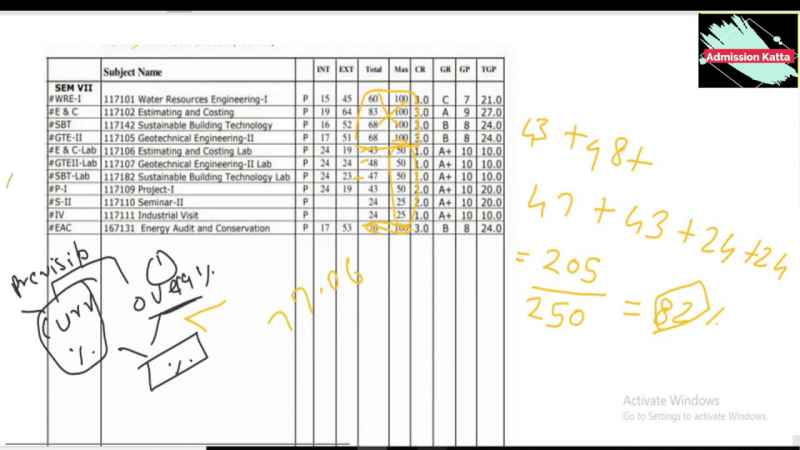If you are an incoming college student, it is always essential for you to learn how to calculate the semester percentage of your course. To make sure that you have the correct number of credits and get a good grade on your course, you’ll need to do this. If you are struggling with any of the topics in your course and you cannot seem to figure them out, this can help you. This article will tell you some ways on how to calculate overall semester percentage of your course.
To start off, you need to know what your GPA is before you go on and learn how to calculate. Your GPA is a calculated figure that shows you how you do in the class. It will inform you of the number of units you have earned throughout your course. The higher your GPA is, the better you did in class. You get a letter grade for how hard you try in class.
To be able to calculate, you will need to know how many courses you have taken during the semester. For you to know this, you need to add up all your course titles. After you’ve done that, you’ll know how many units you need to finish. This includes how many AP classes you took as well as any CLEP exams you did. If you’ve included tests in your course, you should also provide those.

Next, you will need to multiply your GPA by your course’s GPA. This will inform you how many units ahead of schedule you are. If you have done very well in the class, you can have about six months until you graduate. If you don’t pass the test, you’ll have to wait two years. However, if you did well, then you can have one year before you can apply it.
You also need to know how to calculate the overall semester percentage for different majors. However, it will depend on what major you choose. So if you choose art, engineering, computer science, and math, you will have different percentages. Those percentages will differ on how complex the classes are. However, if you choose engineering, computer science, and art, you will have similar percentages.
Other factors include how many credit hours you have taken throughout the semester. If you have more courses, then you will have a higher GPA. Of course, you can always increase your GPA with help from an advisor. This will include giving you enough time to study, attending tutorial sessions, and so on.
It is also essential to know how many units you need to graduate when calculating the overall semester percentage. However, this is not always the case. In some cases, you may need fewer units than usual for a particular course.
Some students have an idea of how to calculate overall semester percentage without looking at the requirements. However, if you want to get the details of how many units you need, you should talk to your advisor. They can give you the exact calculations. Your advisor can also help you find out if the course requirements you are taking will be easier or more complicated than those in your major.
Of course, knowing how to calculate the overall semester GPA is not enough. You must also know how to assess it. How do you go about doing this? First, you need to see what your GPA is compared to your peers’ average GPA. For your GPA, you can use either your course’s GPA computation or your GPA from your academic records. The first two are more accurate since they take into account all the coursework that has been done.
Once you know how to calculate overall semester GPA, you should also ensure that your transcript and degree documentation accurately reflect your coursework. There are some courses where your transcript may differ slightly from your degree documentation. This is something you should discuss with your academic counselor. You will also need to check whether your transcript has been altered since your graduation.
You can now step up your learning and get ready to face your new professional life with these things in mind. Start planning how to calculate overall semester GPA correctly. This will allow you to be on top of your game and give you a head start when it comes to getting accepted by the best colleges and employers. Good luck!
